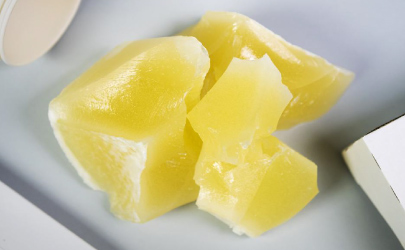Eco-Driven Growth: The Rise of Biodegradable Hot Melt Adhesives in Asia Pacific

" The Asia Pacific biodegradable hot melt adhesives market is experiencing notable growth, driven by increasing demand for sustainable and eco-friendly solutions across industries such as packaging, automotive, and personal care. Governments in the region, particularly in countries like China, Japan, and India, are implementing stringent environmental regulations, which have further fueled the adoption of biodegradable adhesives. The rise in e-commerce and packaging requirements, coupled with growing consumer awareness around sustainability, has also contributed to this market's expansion.
Natural polymers, such as starch and cellulose, are gaining traction due to their biodegradability and cost-effectiveness, while synthetic biodegradable polymers are being utilized for more specialized applications. Key market players are investing in R&D to enhance product performance and expand application areas. However, challenges such as high costs and limited availability of raw materials persist. Overall, the Asia Pacific market is expected to grow steadily, with a focus on innovative solutions and increasing adoption of green materials across sectors."
The Asia Pacific Biodegradable Hot Melt Adhesive market was valued at USD 57.11 million in 2023 and is projected to reach USD 151.79 million by 2030, with a compound annual growth rate (CAGR) of 15.8% from 2024 to 2030.
Additionally, growing awareness of environmental issues and stricter regulations regarding plastic use are prompting manufacturers to shift toward eco-friendly alternatives. The region also boasts a robust manufacturing sector that is increasingly adopting biodegradable adhesives to meet sustainability goals. Moreover, advancements in technology and investments in research and development are enhancing the quality and performance of biodegradable adhesives, making them more appealing to industries such as automotive, textiles, and construction.
Rapid industrialization and urban development are increasing the demand for packaging materials in key sectors like food and consumer goods.
The Asia-Pacific region is experiencing rapid industrialization and urbanization, especially in emerging economies like China and India. This growth is leading to an increase in the production and consumption of goods, particularly in sectors such as packaging, construction, and automotive. As urban populations rise, the demand for efficient and sustainable packaging solutions also grows. Biodegradable hot melt adhesives are being adopted as they offer a sustainable alternative to traditional adhesives. Furthermore, urbanization is influencing consumer behaviors, with a growing preference for convenient and environmentally friendly products. As a result, manufacturers are compelled to innovate and adapt their product offerings, driving growth in the biodegradable adhesive market.
Higher disposable incomes are leading to increased consumer spending on packaged products, driving the need for sustainable packaging solutions.
The rise in disposable income across the Asia-Pacific region is significantly influencing consumer behavior, particularly in terms of spending on packaged goods. As middle-class populations expand, consumers are increasingly willing to pay a premium for products that offer sustainability and environmental benefits. This shift in purchasing power is driving demand for eco-friendly packaging solutions that utilize biodegradable hot melt adhesives. Industries such as food and beverage, personal care, and electronics are experiencing a surge in demand for sustainable packaging that appeals to environmentally conscious consumers. As a result, companies are prioritizing the development and use of biodegradable adhesives to capture this market segment, fostering growth in the biodegradable adhesive market.
Growing public awareness of environmental issues is prompting consumers and businesses to prioritize eco-friendly products.
Customers and companies in the Asia-Pacific area have become much more environmentally conscious in recent years. People and organizations are looking for sustainable alternatives as a result of growing worries about plastic waste and its effects on the environment. Because of this understanding, people are choosing more and more recyclable or biodegradable products while making purchases. Manufacturers are responding to this trend by using biodegradable hot melt adhesives to show their dedication to sustainability and to satisfy consumer preferences. This change helps businesses adhere to new environmental standards while also improving brand reputation. The need for biodegradable adhesives is anticipated to increase in tandem with growing environmental consciousness, propelling market expansion.
Stricter government regulations aimed at reducing plastic waste are encouraging manufacturers to adopt biodegradable materials.
Stricter laws are being put into place by governments throughout the Asia-Pacific area to address environmental issues, especially those pertaining to plastic garbage. By restricting the use of single-use plastics and promoting the use of biodegradable materials, these laws force producers to embrace more environmentally friendly procedures. Because of this, businesses are spending more money developing biodegradable hot melt adhesives in order to abide with these rules and stay out of trouble. As companies look to match their goods with government regulations meant to promote sustainability, this regulatory backing is fostering an atmosphere that is conducive to the growth of the biodegradable adhesive market. Additionally, public awareness efforts that further inform customers about the advantages of biodegradable products are frequently sparked by these restrictions, increasing market demand.
Innovations in adhesive formulations are improving the performance and cost-effectiveness of biodegradable adhesives.
Technological advancements play a crucial role in the growth of the biodegradable hot melt adhesive market in the Asia-Pacific region. Ongoing research and development efforts are leading to innovations in adhesive formulations, enhancing their performance, durability, and application versatility. Manufacturers are exploring new bio-based raw materials that improve the properties of biodegradable adhesives, making them more competitive with traditional options. These advancements are not only addressing performance concerns but also reducing production costs, making biodegradable adhesives more accessible to various industries. As technology continues to evolve, the quality and effectiveness of biodegradable hot melt adhesives will improve, driving further adoption across sectors such as packaging, automotive, and textiles.
Competitive Landscape
Some of the major companies operating within the Biodegradable Hot Melt Adhesive market are: Kiilto Biomelt, Beardow Adams, H.B. Fuller, Protechnic, TEX YEAR, Henkel AG & Co. KGaA, Shenzhen Esun Industrial, Focus Hotmelt and Others.